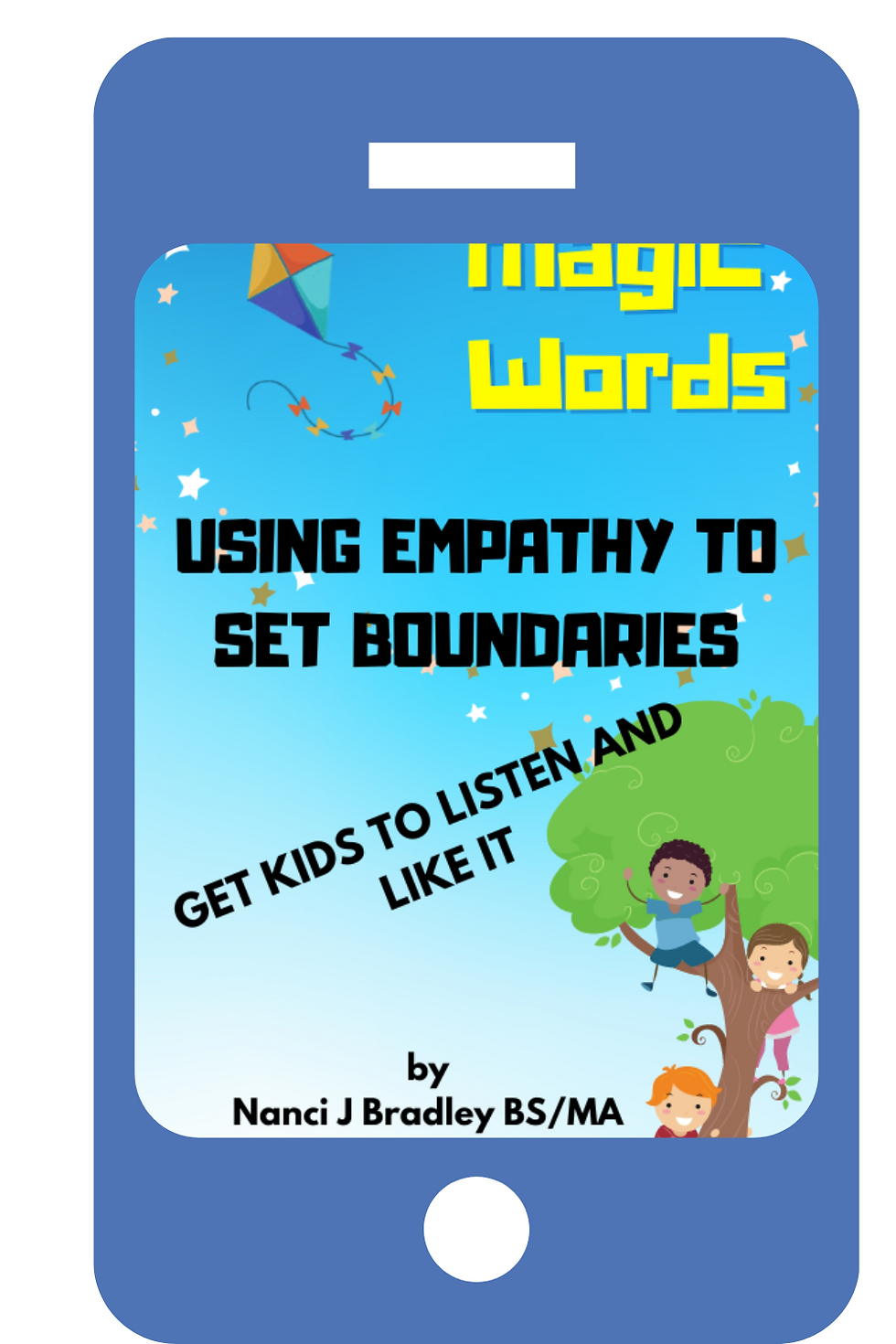Toddler Biting? 7 Tried and True Tips From a Seasoned Childcare Teacher
- Nanci Bradley
- Jul 18, 2024
- 4 min read
Updated: Jul 28, 2024
If you're in charge of a toddler who's biting, you're under stress.
I know because I've been there. I've experienced the tension and confusion that comes with biting.
I've witnessed, not one, but two, toddlers cure themselves of biting. The first one accidently bit her own hand as it was one of 4 hands clutching a Little Tikes car steering wheel. The second accidently bit down on a pile of sand after the other child quickly pulled their hand away. I helped him get the sand out of his mouth and never said, "Guess you shouldn't have tried to bite her". It was too obvious at that point. It was a true natural consequence.
A few years back I assembled a cheat sheet for biting. When biting's a problem, parents and teachers want action taken quickly.
I know that because I have over 50 years experience teaching toddlers and other very young children in many different capacities including infant/toddler teacher, childcare administrator and head start teacher. I'm also a parent and a grandparent.
Directly following the 7 cheat sheet ideas is a link to a very professional and informative article on biting written by a colleague with an impeccable reputation. The article includes references.

ONE
Use the BAD method of observation. Take some time right now to write down everything you remember about what occurred Before After and During the biting incident. Was the child hungry, tired, or in a crowded space? Was it noisy? Who was there? What were they doing? Where were you? What time of day was it?
By the way, I would never call a child bad or even say "biting's bad". I just used the anacronym because it works to help me remember what I need to document.

TWO
Shadow and scan. When biting happens and you don't want it to happen again, you have to shadow (follow) the child and watch them like a hawk, especially in light of what you noticed from your BAD method notes. If you do this right, you'll soon be trusting them to play on their own again. If you can't be close enough to intervene quickly, take the child with you as your "buddy", hold their hand or hold them until you feel safe letting them down.

THREE
Say Stop! Move in quickly and safely. Remain as calm and gentle as you can be.
If you can't stop the bite from happening, Say "biting hurts" firmly to the biter and immediately care for the bitten.
Wash and soothe the area. Use soap. Apply ice if there's any swelling. If the skin's been broken they'll need to be seen by a doctor or a health care professional because of the high risk of infection.
FOUR
Use the Mr. Rogers Method. During a calm time later, use puppets to tell a story about a child who feels so frustrated, they bite another child. Talk about the way the puppets feel in a non-judgmental way and have the puppets learn to solve the problem in a better way like asking for a turn or holding out their hand as a symbol for asking.
FIVE
Get a dummy. Sometimes biting happens with no provocation. Regardless, it helps if the child is given a substitute to chew or suck on before it does. Pacifiers, special chewing necklaces, teething rings, wet washcloths, and thumbs have all been known to work. Kids who bite are not meaner or more aggressive than others. They are working on impulse control and may have other oral issues.

SIX
Create peace. Remove clutter. Encourage space between kids and make places to play separately. Consider getting duplicates of some toys or removing them for a while. Add soft lighting and maybe quiet or gentle music.
SEVEN
Teach the child to communicate by using language stimulation. Play games like freeze dance that encourage body control. Try yoga with kids. Increase the amount of sensory play like play dough, bath time play, sandbox, and swinging.
Next, I'm including a very special link to an article called
by Lorna Aaronson
Many of the best things I've learned about biting came from this very professional article and her workshop with the same title.
If you want some support with sharing, cleaning up, tattling, or positive communication
We're here for you! And it's free.
If you want more professional information about early childhood education check out our homepage, here.
Early Childhood Rocks is a nonprofit organization dedicated to providing professional support for teachers.
You can get a free copy of our eBook, Magic Words, below
Nanci J Bradley is an early childhood and family educator, author, teacher, family aerobics instructor, and an all-around fun-loving person. She believes in the power of sleep, healthy eating, lifelong learning, and most of all, PLAY! (click on the word) She studied early childhood ed at Triton College and received her BS in education in 1986 from NIU. She received her MA in human development from Pacific Oaks College in 2010. She lives and teaches in Madison WI.
11.












Comments